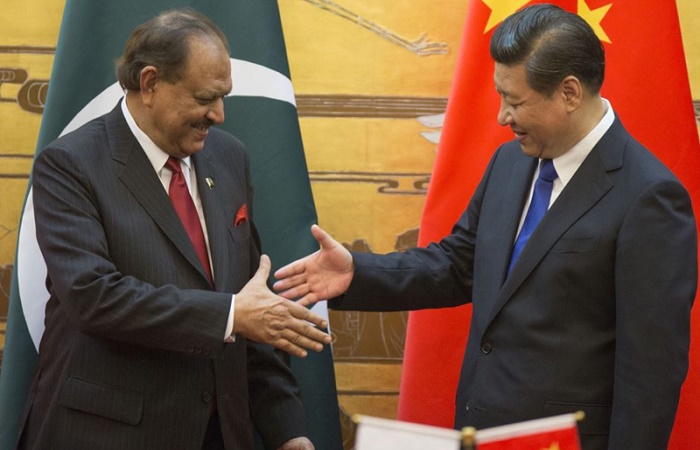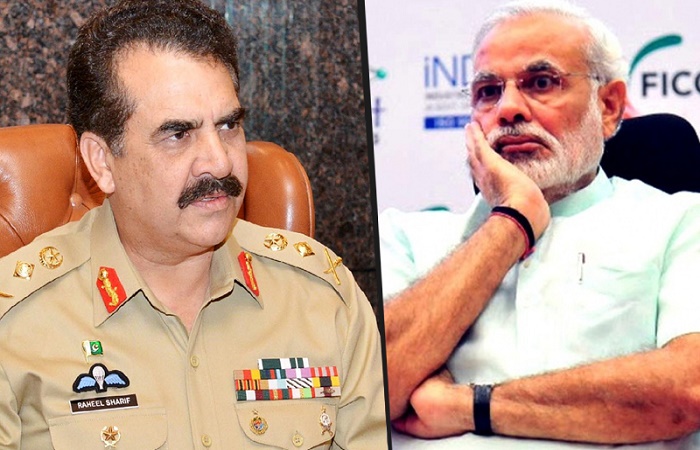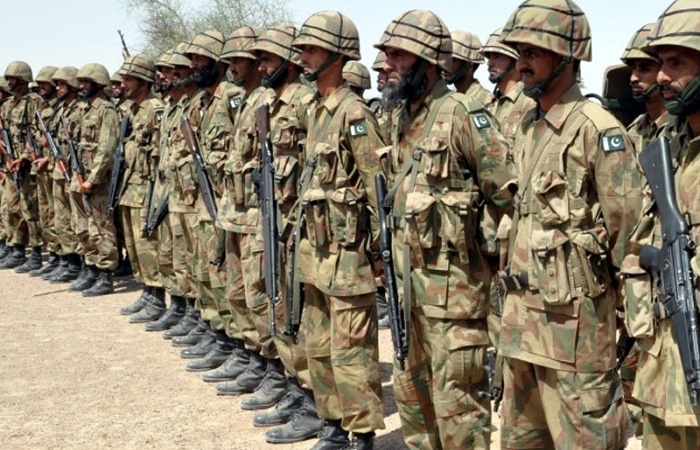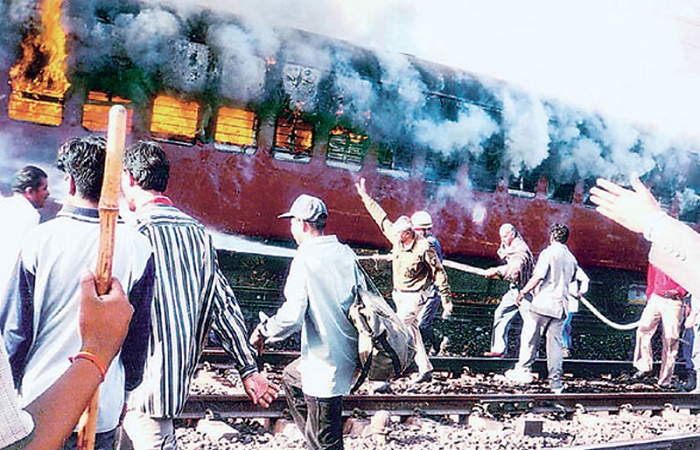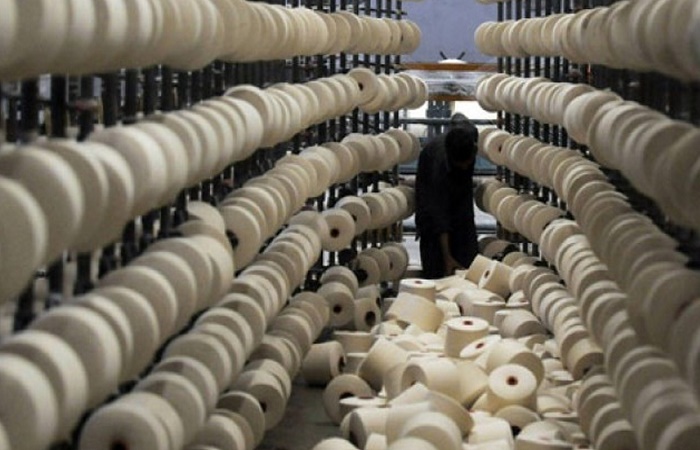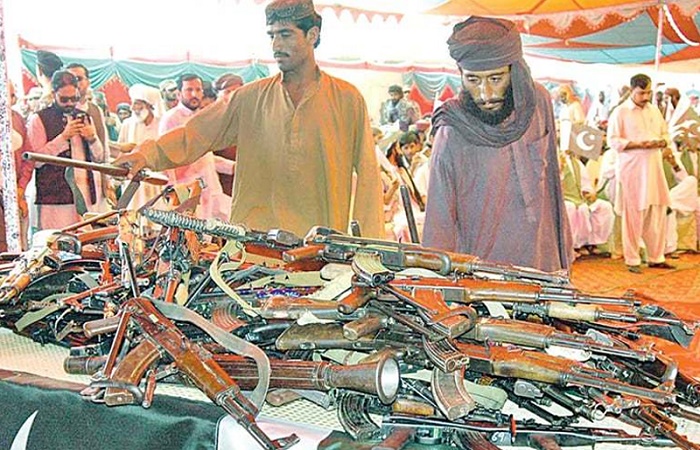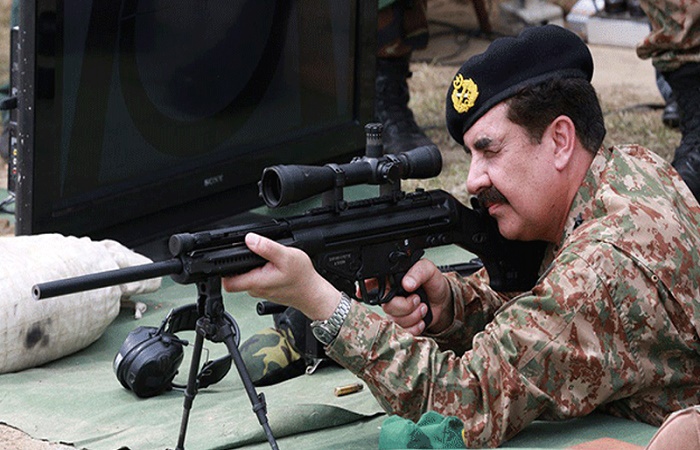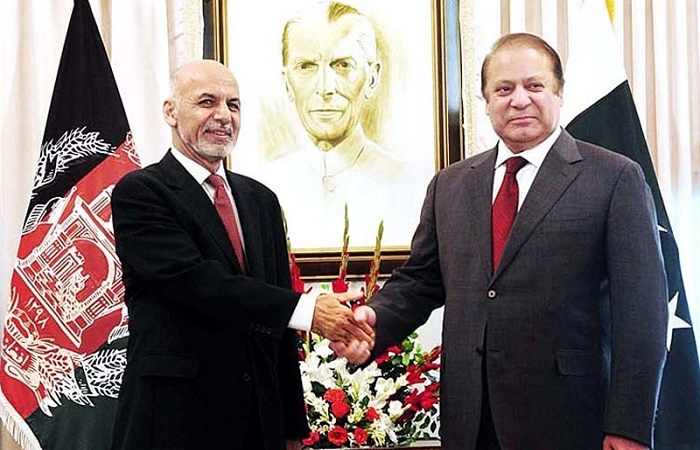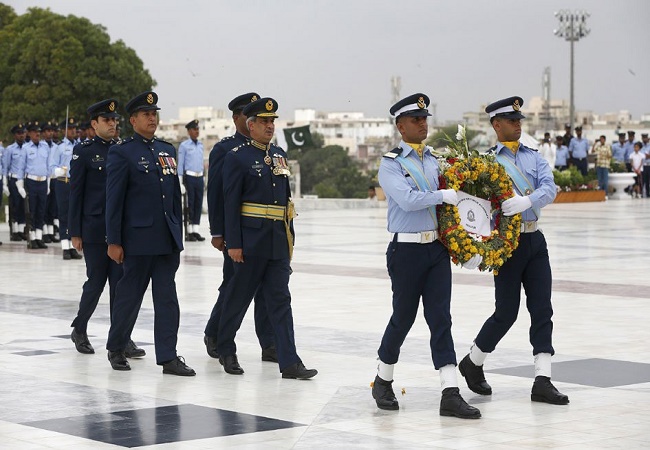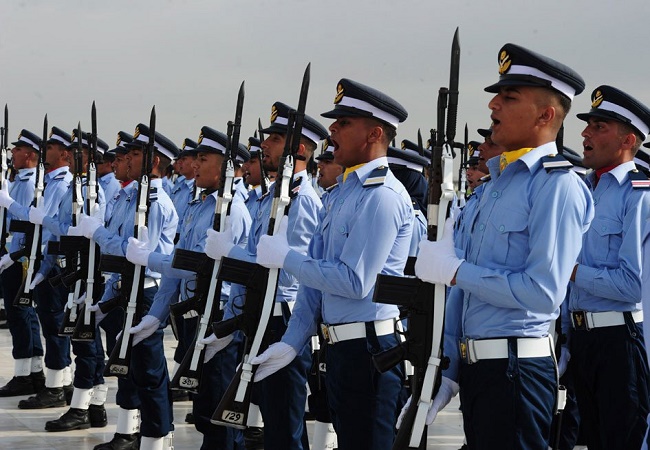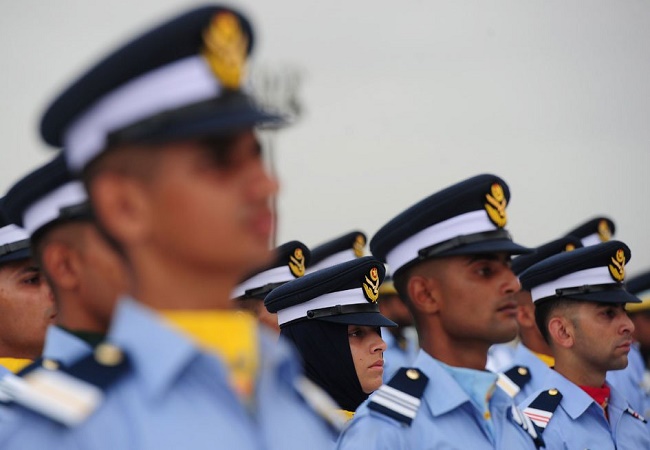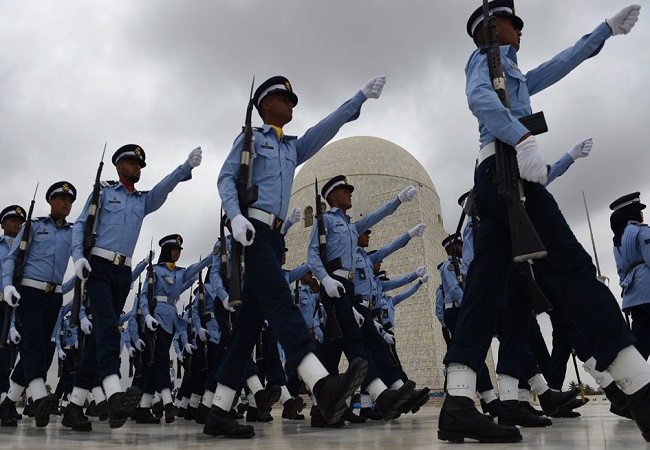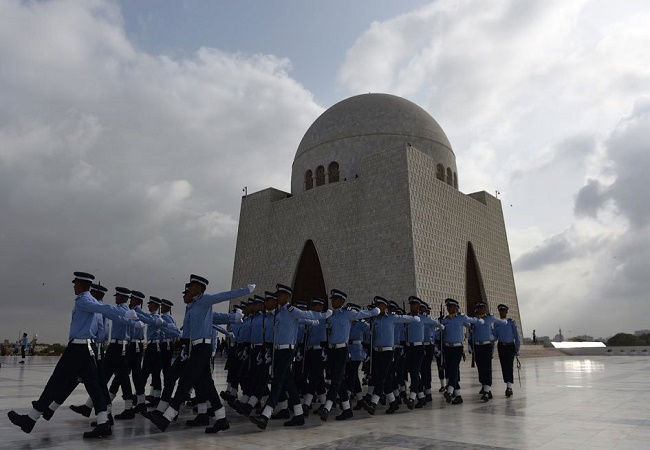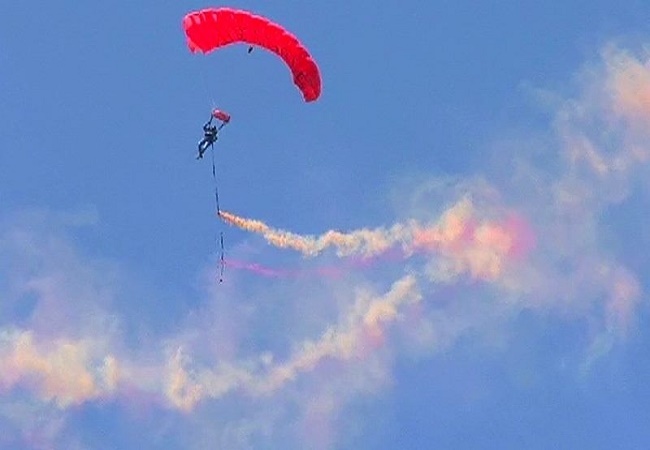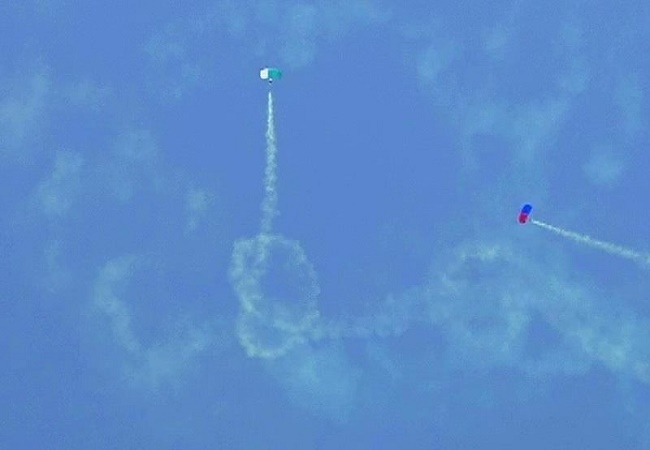Recent Articles
Wednesday, September 23, 2015
Wednesday, September 23, 2015
- 0 Comments
Two million white-clad Muslims from across the globe began the hajj pilgrimage in Saudi Arabia in one of the world's largest annual gatherings. The intending pilgrims will perform the main pillar of Hajj, Wuquf-e-Arafa today.
Wuquf-e-Arafat (Stay at Mount Arafat)
Having spent the evening at Mina, the Tent City, Hajis are headed towards rocky hill, Mount Arafat where they believe the Prophet Mohammed gave his final sermon 14 centuries ago after leading his followers on the hajj.
Wuquf (Stay) in Arafat is performed from Zuhr to sunset on the 9th of Zil-Hajj of Islamic year.
Imam of Nimra Mosque will deliver his sermon to Hajj pilgrims in Arafat and the pilgrims would offer Zohar and Asar prayers jointly at Arafat.
The main action in Wuquf is not to pray lots of Nafils but to just stand facing the Baitul Haram (Sacred House) asking Allah for forgiveness while recognizing Him as our Lord.
The holy Prophet (PBUH) said, "Al Hajju Arafah," means ‘standing in Arafat’ is the Hajj.
After the Wuquf-e-Arafat, the pilgrims would move towards Muzdalafa and there they would perform remaining two prayers, Maghrib and Isha, together.
All Hajj pilgrims will stay whole night in Muzdalfa and continue worships for forgiveness and pleasing God, the almighty.
They would perform Fajar prayer on morning of 10th Zil-Hajj in Muzdalfa and then return to Mina for following act of Hazrat Ibrahim (A.S), Rami, stoning the big Satan.
After stoning the Satan, Hajj pilgrims will shave off heads or trim hairs, to the prescribed level, and then would get off the Ahrams, Hajj cloths, at completion of Hajj rituals.
Muslims celebrate Eid-ul-Adha and sacrifice Halal animals of their choices every year, after completion of Hajj proceedings.
Tired But Happy
A sandstorm blew and light rain fell as streaks of lightning lit up the skies above the vast plain surrounding Mount Arafat, where the faithful began to arrive ahead of the climax of hajj on Wednesday.
Many reached Arafat by bus but others walked from the holy city of Makkah about 15 kilometres (nine miles) away.
Some unloaded their luggage from buses while fellow pilgrims struggled in the winds to set up their tents beside the road.
Police manned checkpoints along the way to verify the permits of the faithful, many of whom appeared worn out, a contrast to the joy pilgrims showed earlier in Makkah.
"Transport is bad, our residence is bad, and food is really bad... even though we paid around $4,000 (3,603 euros) to come," said Tunisian pilgrim Abu Salim, 58.
"However, tiredness for the sake of God is not that big a problem."
For many, the hajj will be the highlight of their spiritual lives.
This year's gathering is about the same size as last year's, with 1.4 million foreign pilgrims joining hundreds of thousands of Saudis and residents of the kingdom.
They are undeterred by a construction crane collapse at Makkah's Grand Mosque earlier this month that killed 109 people, including foreign pilgrims.
About 400 people were injured by the crane which was working on an expansion of Islam's holiest site.
Previously marred by stampedes and fires that killed hundreds, the pilgrimage had been largely incident-free for the past nine years after safety improvements.
The hajj is among the five pillars of Islam and every capable Muslim must perform it at least once in a lifetime.
Yemeni pilgrim Mohammed al-Mikhlafi, 54, complained of "a lack of organisation" at the gathering, where he planned to pray for Muslim unity.
"One belongs to the Islamic State (IS) group, another to Al-Qaeda. These groups are destroying Islam while fighting under its banner," said the Yemenia Airways employee, who lives in Saudi Arabia.
His wife stood covered from head to toe with only her eyes showing.
100,000 police
This year's gathering takes place against a backdrop of increased jihadist violence in some Muslim countries, a surge of the potentially deadly MERS virus and the war in Saudi neighbour Yemen.About 100,000 police have been deployed to secure pilgrimage sites and manage the crowds.
Authorities say they are on alert for possible attacks by extremists.
IS jihadists have bombed security forces and mosques in the kingdom in recent months.
Security forces have taken "measures to prevent terrorist groups from exploiting hajj season to carry out acts of sabotage," interior ministry spokesman General Mansur al-Turki said.
This year's hajj also comes with Saudi Arabia at war.
Since March the kingdom has led an Arab coalition conducting air strikes and supporting local forces in Yemen against Iran-backed rebels.
Most Yemeni pilgrims performing the hajj this year already reside in the kingdom.
Among other challenges facing Saudi authorities is potential transmission of the deadly Middle East Respiratory Syndrome coronavirus (MERS-CoV).
The capital saw a jump in infections last month, but health officials say there has never been a case of MERS infection among pilgrims.
The health ministry has mobilised thousands of medical workers to help ensure a virus-free pilgrimage and to care for routine ailments.
The first day of the hajj is known as Tarwiah Day, when pilgrims traditionally watered their animals and stocked water for their trip to Mount Arafat.
On the way, modern-day pilgrims stay in specially built fireproof tents during their stop in Mina, a city which only comes alive during hajj season.
At Mount Arafat they will pray and recite from the holy Koran.
Pilgrims start the hajj by entering ihram, a state of purity in which they must not quarrel, wear perfume, or cut their nails or hair.
During ihram, men wear a seamless two-piece shroud-like white garment, while women must wear loose dresses, generally also white, exposing only their faces and hands.
The clothing emphasises their unity, regardless of whether they spend the hajj in Makkah's five-star hotels or in shabby highrise hostels.
- See more at: http://www.suchtv.pk/world/item/27770-muslim-pilgrims-mass-in-makkah-for-haj.html#sthash.qWzqytwF.dpuf
Wednesday, September 16, 2015
Wednesday, September 16, 2015
- 0 Comments
The federal government Tuesday announced holidays on account of Eid-ul Azha.
According to the notification issued by the Interior Ministry, Eid holidays will begin from 24th to 27th of this month.
Yesterday, official moon sighting committee announced that Zilhajj moon was not sighted anywhere in Pakistan.
Addressing a press conference in Karachi after chairing a meeting of the Central Ruet-e-Hilal Committee, Mufti Muneeb ur Rehman said that moon could not be sighted in Pakistan on Monday.
Eid al Adha will be marked on Friday, September 25, he had announced.
History:
Eid al-Adha, also called the Feast of Sacrifice , the Greater Eid, or Bakr-Eid , is the second of two religious holidays celebrated by Muslims worldwide each year. It honors the willingness of Hazrat Ibrahim (Peace Be upon Him) to sacrifice his promised son, Hazrat Ismail (Peace Be upon Him), as an act of submission to Almighty Allah's command, before God then intervened, through his angel Jibra'il and informs him that his sacrifice has already been accepted.
The meat from the sacrificed animal is preferred to be divided into three parts. The family retains one third of the share; another third is given to relatives, friends and neighbors; and the remaining third is given to the poor and needy.
In the lunar-based Islamic calendar, Eid al-Azha falls on the 10th day of Zill-Hijjah and lasts for four days. In the international (Gregorian) calendar, the dates vary from year to year, drifting approximately 11 days earlier each year.
Eid al-Azha is the latter of the two Eid holidays, the former being Eid al-Fitr. The basis for the observance comes from the 196th ayah (verse) of Al-Baqara, the second sura of the Quran. The word "Eid" appears once in Al-Ma'ida, the fifth sura of the Quran, with the meaning "solemn festival".
Like Eid al-Fitr, Eid al-Azha begins with a Sunnah prayer of two rakats followed by a sermon (khutbah). Eid al-Azha celebrations start after the descent of the Hujjaj, the pilgrims performing the Hajj, from Mount Arafat, a hill east of Makkah.
Eid sacrifice may take place until sunset on the 13th day of Zill-Hijjah. The days of Eid have been singled out in the Hadith as "days of remembrance".The takbir (days) of Tashriq are from the Fajr prayer of the 9th of Zill-Hijjah up to the Asr prayer of the 13th of Zill-Hijjah (5 days and 4 nights). This equals 23 prayers: 5 on the 9th–12th, which equals 20, and 3 on the 13th.
- See more at: http://www.suchtv.pk/pakistan/general/item/27441-govt-announces-eidul-azha-holidays.html#sthash.s6pyVqaS.dpuf
The federal government Tuesday announced holidays on account of Eid-ul Azha.
According to the notification issued by the Interior Ministry, Eid holidays will begin from 24th to 27th of this month.
Yesterday, official moon sighting committee announced that Zilhajj moon was not sighted anywhere in Pakistan.
Addressing a press conference in Karachi
after chairing a meeting of the Central Ruet-e-Hilal Committee, Mufti
Muneeb ur Rehman said that moon could not be sighted in Pakistan on
Monday.
Eid al Adha will be marked on Friday, September 25, he had announced.
History:
Eid al-Adha, also called the Feast of
Sacrifice , the Greater Eid, or Bakr-Eid , is the second of two
religious holidays celebrated by Muslims worldwide each year. It honors
the willingness of Hazrat Ibrahim (Peace Be upon Him) to sacrifice his
promised son, Hazrat Ismail (Peace Be upon Him), as an act of submission
to Almighty Allah's command, before God then intervened, through his
angel Jibra'il and informs him that his sacrifice has already been
accepted.
The meat from the sacrificed animal is
preferred to be divided into three parts. The family retains one third
of the share; another third is given to relatives, friends and
neighbors; and the remaining third is given to the poor and needy.
In the lunar-based Islamic calendar, Eid
al-Azha falls on the 10th day of Zill-Hijjah and lasts for four days.
In the international (Gregorian) calendar, the dates vary from year to
year, drifting approximately 11 days earlier each year.
Eid al-Azha is the latter of the two Eid
holidays, the former being Eid al-Fitr. The basis for the observance
comes from the 196th ayah (verse) of Al-Baqara, the second sura of the
Quran. The word "Eid" appears once in Al-Ma'ida, the fifth sura of the
Quran, with the meaning "solemn festival".
Like Eid al-Fitr, Eid al-Azha begins
with a Sunnah prayer of two rakats followed by a sermon (khutbah). Eid
al-Azha celebrations start after the descent of the Hujjaj, the pilgrims
performing the Hajj, from Mount Arafat, a hill east of Makkah.
Eid sacrifice may take place until
sunset on the 13th day of Zill-Hijjah. The days of Eid have been singled
out in the Hadith as "days of remembrance".The takbir (days) of Tashriq
are from the Fajr prayer of the 9th of Zill-Hijjah up to the Asr prayer
of the 13th of Zill-Hijjah (5 days and 4 nights). This equals 23
prayers: 5 on the 9th–12th, which equals 20, and 3 on the 13th.
Friday, September 11, 2015
Friday, September 11, 2015
- 0 Comments
A research group within ISIS is alleged to have developed and used warfare poisonous agents in the areas under their control. Russia's Foreign Ministry says ISIS now has the scientific documentation necessary to produce chemical weapons.
An anonymous US official cited by the BBC believes ISIS/ISIL has formed a group to produce toxic chemicals such as mustard and chlorine gas (mustard agent, dichloroethyl sulfide, HD blister agent).
“They're using mustard. We know they are,” BBC cited an unnamed US official as saying, adding that the use of chemical warfare by ISIS has been registered on several occasions.
“We've seen them use it on at least four separate occasions on both sides of the border – both in Iraq and Syria,” the official was quoted as saying.
Prior to the emergence of ISIS as a major force in Syria, the country’s chemical warfare arsenals were successfully evacuated and destroyed on a special vessel in the Mediterranean Sea following a deal negotiated with Russia and the US, which both took part in this operation.
According to the BBC, the US intelligence community believes that most possibly ISIS arranged for the production of chemical agents of their own.
“We assess that they have an active chemical weapons little research cell that they're working on to try and get better at it,” the official told BBC, explaining that mustard agent is “not a complex chemical to produce.”
The BBC’s source also did not question the fact that the Syrian government handed over all of its 1,180 tons of declared chemical warfare stockpiles under the threat of US airstrikes in 2013. The process began in October 2013, and was completed by June 2014.
The mustard agent is believed to be produced in the form of powder stuffed into projectiles such as mortar rounds, the official said.
When the mustard agent powder is dispersed in the air after an explosion, it causes blisters when it comes into contact with human skin. It takes months to cure the sores caused by such blisters. Mucous membranes of the upper respiratory passages are severely damaged, while contact with eyes can cause loss of vision.
There is no antidote to mustard agent and the only treatment existing is the physical removal of the agent from the body.
On September 3, the Russian Foreign Ministry’s spokesperson, Maria Zakharova, said that ISIS had obtained the necessary scientific documentation for chemical weapons production.
“In particular, there’s information about ISIS getting scientific and technical documentation for production of chemical weapons, capture of chemical plants, recruitment of foreign experts for activities aiming to set up synthesis of chemical warfare agents,” Zakharova told a media briefing.
The spokesperson warned of the possibility of these chemical agents spreading outside of the territory controlled by ISIS and even beyond of the Middle East. Zakharova called on to the UN Security Council to react to the threat of trans-boundary terrorist activities, implying the use of chemical warfare agents.
On Monday, the UN Security Council called for the creation of an inquiry that will seek to prosecute those behind chemical weapons attacks in Syria. A resolution was unanimously agreed by the 15-member council.
Russia’s Ambassador to the UN, Vitaly Churkin, expressed the hope that the experts appointed for the task will be professional and objective in their work.
“We believe the decision made today is primarily preventive in nature and it will help to ensure that no toxic chemicals will be used as weapons in the future in Syria,” he said.
- See more at: http://www.suchtv.pk/world/item/27221-isis-using-chemical-weapons-in-iraq-syria-report.html#sthash.VFb59Wse.dpuf
An anonymous US official cited by the BBC believes ISIS/ISIL has formed a group to produce toxic chemicals such as mustard and chlorine gas (mustard agent, dichloroethyl sulfide, HD blister agent).
“They're using mustard. We know they are,” BBC cited an unnamed US official as saying, adding that the use of chemical warfare by ISIS has been registered on several occasions.
“We've seen them use it on at least four separate occasions on both sides of the border – both in Iraq and Syria,” the official was quoted as saying.
Prior to the emergence of ISIS as a major force in Syria, the country’s chemical warfare arsenals were successfully evacuated and destroyed on a special vessel in the Mediterranean Sea following a deal negotiated with Russia and the US, which both took part in this operation.
According to the BBC, the US intelligence community believes that most possibly ISIS arranged for the production of chemical agents of their own.
“We assess that they have an active chemical weapons little research cell that they're working on to try and get better at it,” the official told BBC, explaining that mustard agent is “not a complex chemical to produce.”
The BBC’s source also did not question the fact that the Syrian government handed over all of its 1,180 tons of declared chemical warfare stockpiles under the threat of US airstrikes in 2013. The process began in October 2013, and was completed by June 2014.
The mustard agent is believed to be produced in the form of powder stuffed into projectiles such as mortar rounds, the official said.
When the mustard agent powder is dispersed in the air after an explosion, it causes blisters when it comes into contact with human skin. It takes months to cure the sores caused by such blisters. Mucous membranes of the upper respiratory passages are severely damaged, while contact with eyes can cause loss of vision.
There is no antidote to mustard agent and the only treatment existing is the physical removal of the agent from the body.
On September 3, the Russian Foreign Ministry’s spokesperson, Maria Zakharova, said that ISIS had obtained the necessary scientific documentation for chemical weapons production.
“In particular, there’s information about ISIS getting scientific and technical documentation for production of chemical weapons, capture of chemical plants, recruitment of foreign experts for activities aiming to set up synthesis of chemical warfare agents,” Zakharova told a media briefing.
The spokesperson warned of the possibility of these chemical agents spreading outside of the territory controlled by ISIS and even beyond of the Middle East. Zakharova called on to the UN Security Council to react to the threat of trans-boundary terrorist activities, implying the use of chemical warfare agents.
On Monday, the UN Security Council called for the creation of an inquiry that will seek to prosecute those behind chemical weapons attacks in Syria. A resolution was unanimously agreed by the 15-member council.
Russia’s Ambassador to the UN, Vitaly Churkin, expressed the hope that the experts appointed for the task will be professional and objective in their work.
“We believe the decision made today is primarily preventive in nature and it will help to ensure that no toxic chemicals will be used as weapons in the future in Syria,” he said.
- See more at: http://www.suchtv.pk/world/item/27221-isis-using-chemical-weapons-in-iraq-syria-report.html#sthash.VFb59Wse.dpuf
Wednesday, September 9, 2015
Wednesday, September 9, 2015
- 0 Comments
Here are ten reasons why we feel India is in dire need of Burnol, to take care of those burns that are apparent nowadays, for all to see.
From unprovoked, aggressive violations of ceasefire across the Line of Control (LoC) to inciting statements by the Indian leadership, it is apparent that Pakistan has annoyed its eastern neighbour a great deal in the recent past. It’s not simply a case of Pakistan being a safe haven for terrorists that irks India; oh no, it’s quite the opposite. Pakistan’s improving law and order situation as well as its better performance overall, is what is causing India burns. Here are ten reasons why Pakistan should hand over India a burnol, to soothe their aching wounds!
From unprovoked, aggressive violations of ceasefire across the Line of Control (LoC) to inciting statements by the Indian leadership, it is apparent that Pakistan has annoyed its eastern neighbour a great deal in the recent past. It’s not simply a case of Pakistan being a safe haven for terrorists that irks India; oh no, it’s quite the opposite. Pakistan’s improving law and order situation as well as its better performance overall, is what is causing India burns. Here are ten reasons why Pakistan should hand over India a burnol, to soothe their aching wounds!
1. The CPEC project has given India sleepless nights ever since its inception
Ever since China made its intentions to invest heavily in Pakistan through the China-Pakistan-Economic-Corridor project, India has been fretting all the time. The CPEC project can stabilize Pakistan, meets its energy woes and provide much needed financial stabnility to the Islamic Republic. If you think India would like that, you have another think coming!
2. The demand for Khalistan
Sikhs in India are invigorated and charged up at the moment, to launch a fiery Khalistan movement. The Khalistan movement seeks to demand a separate homeland from the Indian government for the Sikhs. India, given the case of 1971, has always meddled in Pakistan’s internal affairs but remains tight-lipped about its own! No wonder their anger, anguish and worries are increasing day by day!
3. Pakistan is the only country that opposes India’s autocratic mindset in the region
Time and again, India has attempted to malign and degrade Pakistan, due to the fact that the Islamic Republic remains the only thorn in India’s side. India encounters strict opposition from Pakistan in its mission to intimidate and bully the smaller countries of South Asia.
4. Success of Operation Zarb-e-Azb
Let’s face it, the whole world is witness to the fact that Pakistan Army has broken the back of Islamic militants opposed to the country’s existence. India cannot afford to see a Pakistan which is not rife with killings, lawlessness and unstable circumstances. Hence, we know why our hostile neighbours are so riled up!
5. Modi’s old habits will die hard
I mean come on. What were we expecting from a mass murderer and a criminal, who got elected? We did witness Modi’s hostile behaviour towards the Muslims of Gujarat and how he abetted their murders. Of course, killing civilians through unprovoked shelling is all we can expect from the barbarian!
6. Pakistan’s improving economic situation
As mentioned, the Chinese investment and an improving law and order has done wonders for Pakistan’s economy. Not only has our GDP increased during the Sharif tenure, businessmen and investors have started warming up to the Islamic country. Regarding India, do I need to state the obvious now?
7. RAW agents not at large anymore
Pakistan has been rounding up in droves, RAW agents which had been previously at large. Especially from Karachi, these anti-state elements from the Indian side have spilled the beans regarding India’s nefarious activities. Hence, Pakistan has the upper hand on the enemy’s tactics for the time being.
8. Balochistan is ever the secure province we all want it to be
On Pakistan’s Independence Day, more than 400 militants laid down their arms in Balochistan and agreed to give up their demand to secede from the country. This dealt a crushing blow to India, which has always financed, supplied and supported insurgency in Balochistan on a massive scale. Kudos to Pakistan Army, again!
9. An army chief we are proud of!
Pakistan’s army chief General Raheel Sharif has India in shivers. For one, he has dealt a crushing blow to the insurgents that caused immense harm to Pakistan and also kept the army out of politics. General Raheel’s endearing efforts have also culminated in Pakistan Army becoming a more stronger and better disciplined institution than ever before!
10. A peaceful Afghanistan translates into a peaceful Pakistan
Pakistan is brokering a peace deal between the Afghan government and the Taliban, which will ensure that peace prevails in Afghanistan. India, which has used Afghan soil to launch anti-Pakistan activities, is again feverish regarding these developments
- See more at: http://www.suchtv.pk/pakistan/general/item/27123-ten-reasons-why-india-is-in-urgent-need-of-burnol.html#sthash.CJsSMXpN.dpuf
Tuesday, September 8, 2015
Tuesday, September 8, 2015
- 0 Comments
Govt #hospitals #doctors & #Nurses stage #protest against freezing of #Health_ Risk_Allowance in #Islamabad
Sunday, September 6, 2015
Sunday, September 6, 2015
- 0 Comments
Saturday, September 5, 2015
Saturday, September 5, 2015
- 0 Comments
Thousands of exhausted migrants streamed into Austria on Saturday, bussed to the border by a Hungarian government that gave up trying to stop them as Europe's asylum system buckled under pressure from the sheer numbers reaching its frontiers.
After days of confrontation and chaos, Hungary's right-wing government deployed dozens of buses to take migrants from Budapest and pick up over 1,000 others - many of them refugees from the Syrian war - who had set off doggedly by foot on Friday down the main highway to Vienna.
Austria said it had agreed with Germany that it would allow the migrants access, waiving the rules of an asylum system brought to breaking point by Europe's worst refugee crisis since the Yugoslav wars of the 1990s.
Hungary insisted the bus rides were a one-off, even as hundreds more migrants began gathering in Budapest on Saturday, part of seemingly relentless surge through the Balkan peninsula from Turkey and Greece.
Wrapped in blankets and sleeping bags against the rain, long lines of weary migrants, many carrying small, sleeping children, climbed off buses on the Hungarian side of the border and walked into Austria, receiving fruit and water from aid workers. Waiting Austrians held signs that read, “Refugees welcome”.
“We're happy. We'll go to Germany,” said a Syrian man who gave his name as Mohammed. Another, who declined to be named, said: “Hungary should be fired from the European Union. Such bad treatment.”
Bavarian state police said they expected the first refugees to arrive in Germany around midday (1000 GMT), with national rail operator Deutsche Bahn saying a special train with 500 refugees aboard due to reach Munich around lunchtime.
Hungary, the main entry point into Europe's borderless Schengen zone for migrants heading northwards through the Balkans, has taken a hard line, vowing to seal its southern frontier within days. Hungarian officials have also painted the crisis as a defence of Europe's prosperity, identity and “Christian values” against an influx of mainly Muslim migrants.
Desperate migrants force Hungary’s hand
For days, several thousand camped outside Budapest's main railway station, where trains to western Europe were cancelled as the government insisted all those entering Hungary be registered and their asylum applications processed in the country as per EU rules.
But on Friday, in separate rapid-fire developments, hundreds broke out of a teeming camp on Hungary's frontier with Serbia, escaped a stranded train, and took to the highway by foot led by a one-legged Syrian refugee and chanting “Germany, Germany!” Citing traffic safety, Hungary said it would supply some 100 buses to take them to the Austrian border.
But the move marked an admission that the government had lost control in the face of large numbers determined to reach the wealthier nations of northern and western Europe at the end of an often perilous journey from war and poverty in the Middle East, Africa and Asia.
By Saturday morning, Austrian police said 4,000 had arrived at the border and numbers might more than double during the day.
Austria laid on extra trains and shuttle buses to ferry the migrants to Vienna, where announcements for Germany-bound trains were made in Arabic as well as German.
German police said they expected to receive 10,000 during the day, while in Hungary police reported new groups of migrants leaving reception camps and setting out on foot for the border.
After the disturbances in Hungary, Vienna police spokesman Roman Hahslinger said: “We (have) had no problems whatsoever with the refugees, everything is very peaceful.”
Men, women and children poured out of the train, saying they were resolved to continue on to Germany, and were handed food, drink and other supplies on a fenced-off platform.
“It was just such a horrible situation in Hungary,” said Omar, who was travelling with his family.
“Because of today's emergency situation on the Hungarian border, Austria and Germany agree in this case to a continuation of the refugees' journey into their countries,” Austrian Chancellor Werner Faymann said on his Facebook page late on Friday.
The scenes were emblematic of a crisis — about 350,000 refugees and migrants have arrived in the European Union this year — that has left the 28-nation EU groping for solutions amid sharp divisions over burden-sharing.
Boy's body on beach pricks EU's conscience
Pressure to take effective action rose sharply this week after pictures flashed around the world of the body of a 3-year-old Syrian Kurdish boy washed up on a Turkish resort beach, personalising the collective tragedy of the refugees. Aylan Kurdi had drowned along with his mother and brother while trying to cross by boat on a tiny rubber dinghy to a Greek island.
Hungary has lashed out at Germany, which expects to receive 800,000 asylum seekers this year, for declaring it would accept Syrian requests regardless of where they enter the EU, contrary to the bloc's rules.
Budapest says this has swelled the influx, and like some others in ex-Communist east European states — unused to taking in notable numbers of foreigners -- it is resisting calls by some western EU leaders for each of the bloc's 28 members to accept a quota of refugees. The discord continued on Saturday.
“Obviously it's in everybody's interest not to have the same situation emerging again; that's why everybody in Europe should think twice about what they say and do,” Hungarian government spokesman Zoltan Kovacs said at the border.
“If this is repeated day after day, this part of Europe will be crippled,” he told Reuters.
“It is victory”
The flow of migrants risking rickety boats to cross the Mediterranean or baton-wielding police on Balkan borders shows no sign of abating despite more trips by sea ending in disaster.
On Friday about 30-40 people drowned off the coast of Libya after a dinghy carrying 120-140 Somalis, Sudanese and Nigerians deflated, causing panic on board, the International Organization for Migration said.
A record 50,000 hit Greek shores in July alone and were ferried from inundated islands to the mainland by a government already floundering in financial crisis and keen to whisk them north into Macedonia, whence they enter Serbia and then Hungary.
Hungary said on Saturday it had recorded some 165,000 entering so far this year. Countless others may have crossed its borders without registering.
Determined to stem the tide, Hungary is building a 3.5-metre (11.5-foot) high fence along its border with Serbia. On Friday, the Budapest parliament adopted measures the government says will effectively seal the frontier to migrants as of Sept. 15.
They include “transit zones” on the border, where asylum seekers would be held until their requests are processed and, if denied, they would be deported.
By nightfall on Friday, the Keleti railway terminus in Budapest, for days a makeshift migrant campsite, was almost empty as smiling families boarded a huge queue of buses that snaked out of the capital. They left shoes, clothes and mattresses scattered behind them. Helicopters circled overhead.
Alerted to rumours of buses to the border, Ahmed from Afghanistan said: “If it is true, it is victory. Maybe we can find a way now.”
The Pakistan Cricket Board (PCB) on Saturday announced the names of 27 players who are given central contracts for a year from July 2015-July 2016 in four different categories.
Pakistan ODI captain Azhar Ali, Test captain Misbahul Haq and T20 captain Shahid Afridi have been included in ‘A’ category. Meanwhile, Muhammad Hafeez, Shoaib Malik and Younus Khan have also been inducted in the same category.
‘B’ category has eight players named in it which include opener Ahmed Shehzad, middle-order batsman Asad Shafiq, wicketkeeper-batsman Sarfraz Ahmed, fast-bowlers Junaid Khan, Rahat Ali, Wahab Riaz and leg-spinner Yasir Shah. Off-spinner Saeed Ajmal who hasn’t been a regular part of the team since remodelling his action has also been named in this category.
In ‘C’ category, batsmen Fawad Alam, Haris Sohail, Shan Masood and Umar Akmal have been included. Wicketkeeper-batsman Muhammad Rizwan, and fast-bowlers Anwar Ali, Muhammad Irfan and Imran Khan have also been named in this category.
In the last of the four category, ‘D’, batsmen Sohaib Maqsood, Umar Ameen and Sami Aslam have been inducted, while all-rounder Babar Azam and left-arm spinner Zulfiqar Babar have been added in this category as well.
The players and PCB had a long-standing dispute over the new central contracts which was going on from before the 2015 World Cup. The announcement comes as a positive news showing relations between the board and the players to be good.
According to a PCB media release, the players and board agreed on the following points:
Subscribe to:
Posts (Atom)





